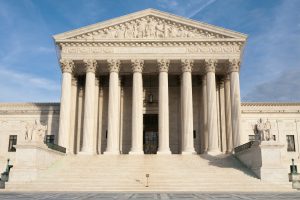WASHINGTON — In a pivotal session, the United States Supreme Court signaled its inclination to uphold the Federal Communications Commission’s (FCC) $8 billion annual Universal Service Fund (USF), a program designed to subsidize phone and internet services in schools, libraries, and rural communities. The justices’ deliberations suggest a consensus across ideological lines on the importance of maintaining this critical funding mechanism.
The USF, established under the Telecommunications Act of 1996, imposes fees on telecommunications providers, which are typically passed on to consumers through their phone bills. These funds are then allocated to ensure that affordable communication services are available in underserved areas. However, the program’s funding structure has faced legal challenges, with critics arguing that Congress granted the FCC excessive authority and that the agency has further delegated too much power to a private administrator. The 5th U.S. Circuit Court of Appeals previously deemed this funding method unconstitutional, prompting the current Supreme Court review.
During nearly three hours of oral arguments, justices from both ends of the ideological spectrum expressed concern over the potential ramifications of dismantling the USF. Justice Sonia Sotomayor highlighted the program’s targeted scope, noting that FCC subsidies are confined to phone and internet services, emphasizing a “very real constraint” on the FCC’s authority.
Conversely, Justice Neil Gorsuch questioned the nature of the fund, describing it as “a tax that’s unlike any other tax this court has ever approved,” reflecting skepticism about the program’s structure.
The case, FCC v. Consumers’ Research, centers on the nondelegation doctrine, which prohibits Congress from transferring its legislative powers to another entity without clear guidelines. The plaintiffs contend that the FCC’s authority to determine contribution amounts to the USF, coupled with its reliance on a private administrator for financial projections, constitutes an unconstitutional delegation of power.
Historically, the Supreme Court has rarely invoked the nondelegation doctrine to invalidate federal statutes, with the last instance occurring in 1935. However, recent years have seen a conservative push to reexamine and potentially revitalize this legal principle. Despite this trend, the justices appeared reluctant to disrupt the longstanding USF, especially considering its role in providing essential communication services to millions of Americans.
The Universal Service Fund supports several key initiatives:
-
High-Cost Program: Assists telecommunications companies in offering affordable services in rural and remote areas where the cost of infrastructure is prohibitively high.
-
Lifeline Program: Provides discounted phone and internet services to low-income consumers, ensuring that essential communication remains accessible to all.
-
E-Rate Program: Offers subsidies to schools and libraries to facilitate affordable internet access, thereby enhancing educational opportunities nationwide.
-
Rural Health Care Program: Supports telehealth services by subsidizing connectivity for rural healthcare providers, improving access to medical resources in underserved regions.
The potential invalidation of the USF raised alarms about the continuity of these programs. Justice Amy Coney Barrett questioned the efficacy of congressional intervention, suggesting that setting an astronomically high funding cap might be a “meaningless exercise,” highlighting the complexities involved in restructuring such a pivotal program.
Legal experts note that while the nondelegation doctrine serves as a check on the separation of powers, its stringent application could disrupt numerous federal programs that rely on agency expertise for implementation. Paul Clement, representing telecommunications associations, argued that this case is “simply not the right case for the court to revamp the nondelegation doctrine,” underscoring the potential for far-reaching consequences.
The Supreme Court’s decision, expected by late June, will have significant implications not only for the future of the Universal Service Fund but also for the broader landscape of federal regulatory authority. As the justices deliberate, stakeholders across the telecommunications industry and public service sectors await a ruling that could redefine the balance between legislative delegation and agency discretion in administering programs vital to the nation’s communication infrastructure.



